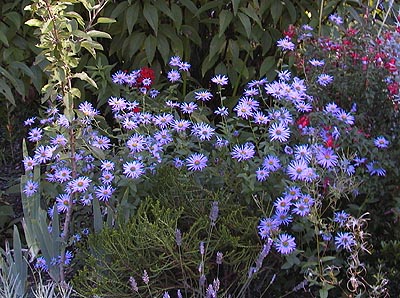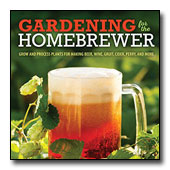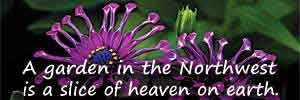Aster frikartii 'Mönch'
MICHAELMAS DAISY
Family: Asteraceae
Pronounced: As-ter FRICK-urt-ee-eye
Quick Jumps
Growing Guide
Rainy Side Notes
GROWING GUIDE

Country of Origin:
Garden origin.
Plant group:
Perennial.
Hardiness:
Sunset zones: All (Western).
USDA zones: 5-8.
Mature size:
Height: 28 inches (71 cm).
Width: 16 inches (40 cm).
Flowering period:
August until first frost .
Flowering attributes:
Lavender-blue flowers with orange centers.
Leaf attributes:
Dark green leaves.
Growth habit:
Clump forming.
Light:
Full sun.
Soil:
Moderately fertile, well-drained soil.
Feeding:
Apply a mulch of compost or manures applied in fall. Apply a complete organic fertilizer in spring. After cutting back growth in early summer, a light feeding of fish fertilizer will help with new leaf growth.
Propagation methods:
Division in early spring or late fall. | Root basal cuttings in spring.
Pruning methods:
Cut plants back by half in late May or early June to promote bushier growth. May need staking.
Rainy Side Notes
Around 1920 at the Stafa Nursery in Switzerland, Karl Frikart crossed an eastern European species A. amellus with A. thomsonii native to the Himalayans in Pakistan. He came up with the Frikart's asters - A. 'Mönch' and A. 'Wonder of Stafa'.
Aster 'Mönch' is very similar to A. 'Wonder of Stafa. and is a good cut flower. Unlike many asters, it is not susceptible to powdery mildew. These cultivars are good butterfly and bee plants.
Article: Planning a Colorful Autumn Garden.
Photographed in author's garden.

Gardening for the Homebrewer: Grow and Process Plants for Making Beer, Wine, Gruit, Cider, Perry, and More
By co-authors Debbie Teashon (Rainy Side Gardeners) and Wendy Tweton
Copyright Notice | Home | Search | Perennials

